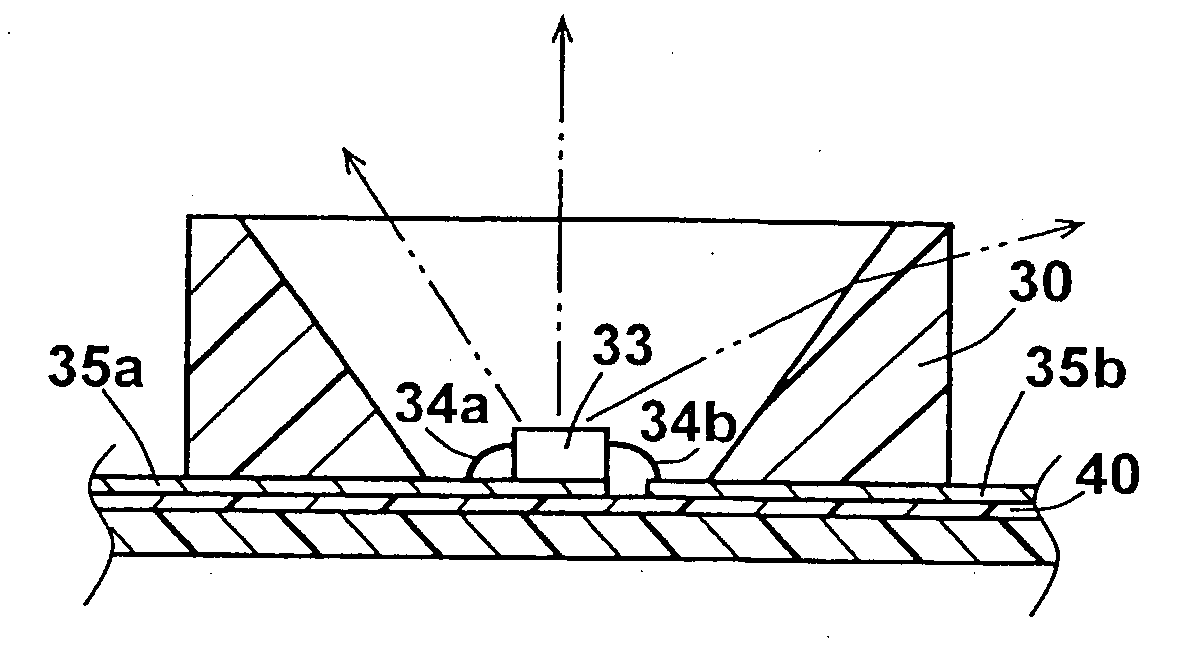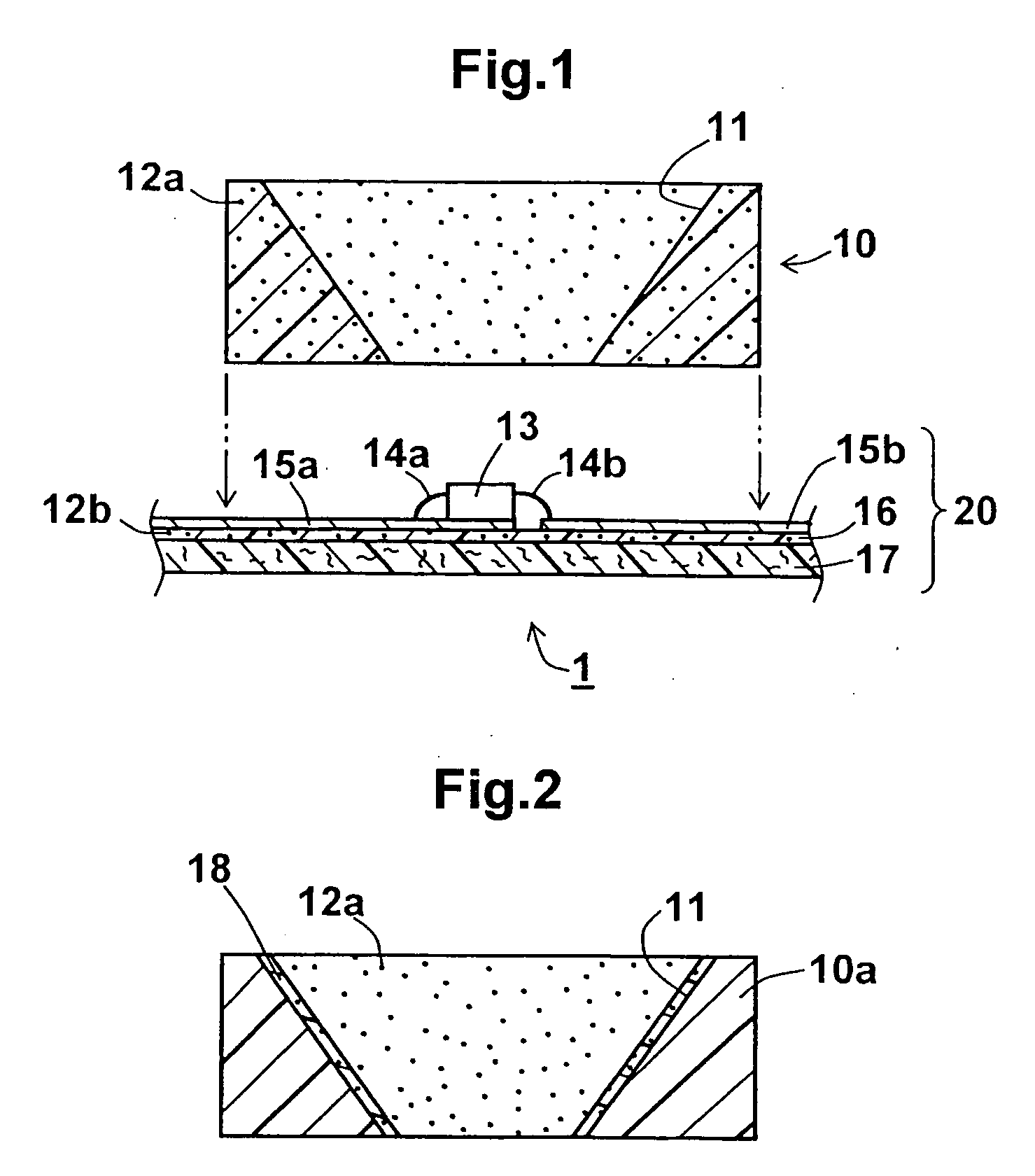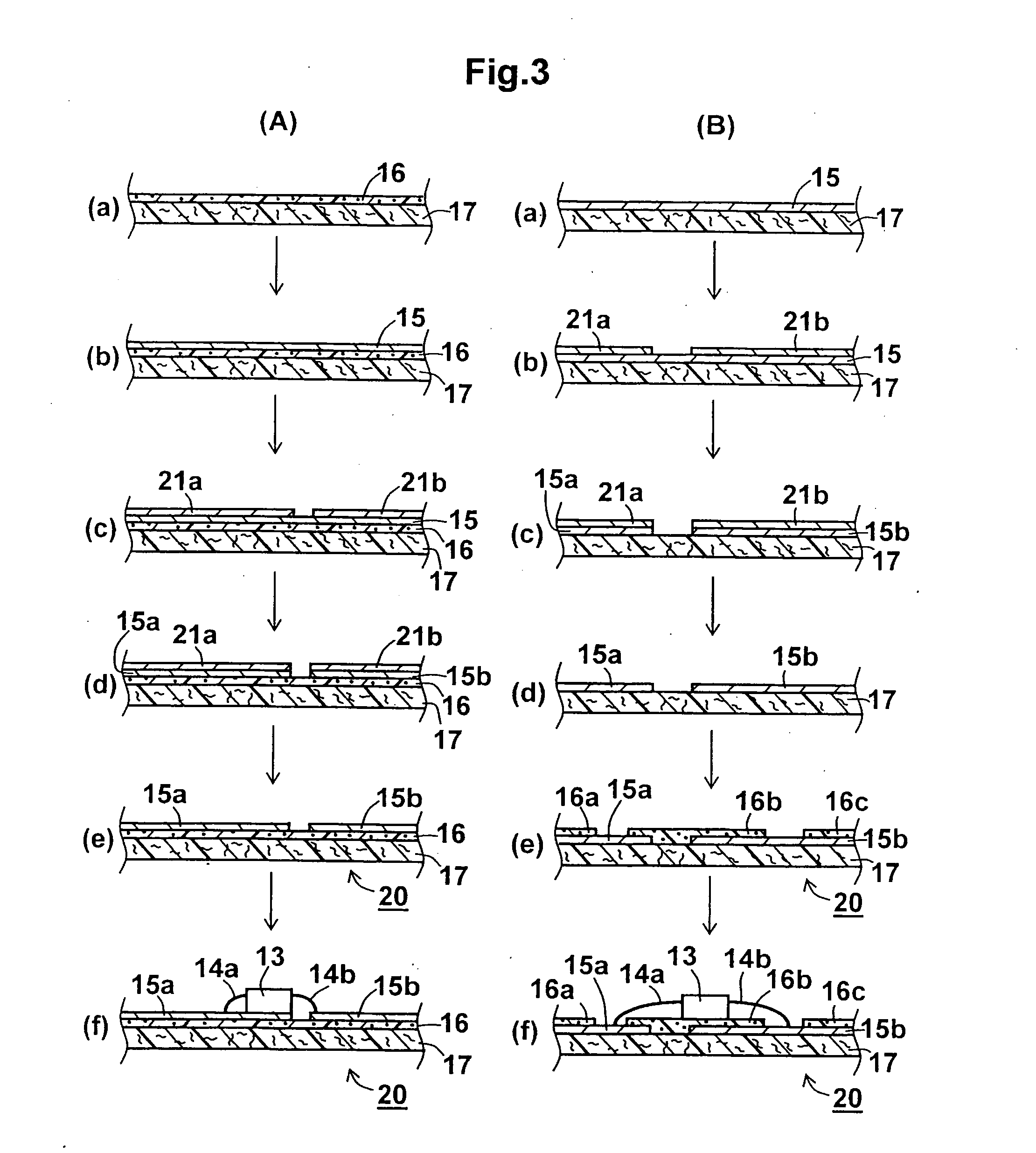White color reflecting material and process for production thereof
- Summary
- Abstract
- Description
- Claims
- Application Information
AI Technical Summary
Benefits of technology
Problems solved by technology
Method used
Image
Examples
example 1
[0122]10 parts by mass of anatase-type titanium oxide (trade name SA-1 produced by Sakai Chemical Industry Co., Ltd.) was dispersed in 100 parts by mass of a silicone resin (trade name SR-7010 produced by Dow Corning Toray Co. Ltd.). A white color reflecting plate measuring 70 mm long, 50 mm wide and 1 mm thickness was manufactured using a heat press at 170° C. for 5 minutes. After that, it was annealed at 170° C. for 90 minutes, thus obtaining test samples. Light reflectance was measured after heat aging at 150° C. for 1,000 hours, using a spectrophotometer UV-3150 (produced by Shimadzu Corporation). Light reflectance was measured at three wavelengths (380 nm, 550 nm and 780 nm). The results are combined together and shown in Table 1.
TABLE 1Reflectance (%),Reflectance (%),before heat agingafter heat aging400 nm550 nm780 nm400 nm550 nm780 nmEx. 1829190779091
[Evaluation of Light Reflectance after Heat Aging at High Temperature]
[0123]As clearly seen from Table 1, there was no signific...
example 3
[0129]25 μm-thick BT resin substrates, which were prepared in the same manner as described in Example 2, were coated respectively with the titanium oxide-containing silicone composition in which 10 parts by mass (phr), 25 phr, 50 phr or 250 phr of rutile-type titanium oxide was added respectively into 100 parts by mass of silicone resin, so as to prepare 25 μm-thick films, thereby obtaining 50 μm-thick laminate-type white color reflecting materials. Light reflectance was measured in the same manner as described in Example 2 and the correlationship between irradiation wavelength and light reflectance is shown in FIG. 8. The heat aging and light reflectance measurement were carried out in the same manner as described in Example 2 and correlationship between irradiation wavelength and light reflectance is shown in FIG. 9.
[Evaluation of Light Reflectance in Relation to an Additive Amount of Rutile-Type Titanium Oxide Dispersed in the 25 μm-Thick Coating Film on the BT Resin Substrate of...
example 4
[0131]25 μm-thick GE resin substrates, which were formed in the same manner as described in Example 2, were coated with a titanium oxide-containing silicone composition in which an additive amount of 10 parts by mass (phr), 25 phr, 50 phr or 250 phr of rutile-type titanium oxide were respectively added into 100 parts by mass of silicone resin, so as to prepare 25 μm-thick films, thereby obtaining 50 μm-thick laminate-type white color reflecting materials. Light reflectance was measured in the same manner as described in Example 2 and the correlationship between irradiation wavelength and light reflectance is shown in FIG. 10. Heat aging and light reflectance measurement were carried out in the same manner as described in Example 2 and correlationship between irradiation wavelength and light reflectance is shown in FIG. 11.
[0132]FIG. 10 shows correlationship between irradiation wavelength and light reflectance of 25 μm-thick base plates which were formed by coating the GE resin subst...
PUM
| Property | Measurement | Unit |
|---|---|---|
| Thickness | aaaaa | aaaaa |
| Thickness | aaaaa | aaaaa |
| Percent by mass | aaaaa | aaaaa |
Abstract
Description
Claims
Application Information
 Login to View More
Login to View More - R&D
- Intellectual Property
- Life Sciences
- Materials
- Tech Scout
- Unparalleled Data Quality
- Higher Quality Content
- 60% Fewer Hallucinations
Browse by: Latest US Patents, China's latest patents, Technical Efficacy Thesaurus, Application Domain, Technology Topic, Popular Technical Reports.
© 2025 PatSnap. All rights reserved.Legal|Privacy policy|Modern Slavery Act Transparency Statement|Sitemap|About US| Contact US: help@patsnap.com



